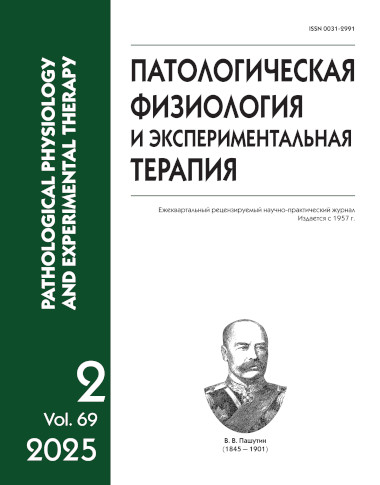Changes in steroidogenesis in psychoneurological diseases as a pathological aspect of the development of clinical phenomena
DOI:
https://doi.org/10.48612/pfiet/0031-2991.2025.02.108-116Keywords:
steroid hormones, neurosteroids, adrenal glands, stress, psychoneurological diseases, neurodegeneration, autismAbstract
The review focuses on the function of steroid hormones as an important component of the neuroimmunoendocrine regulatory system responsible for adaptation of the body both at the physiological and behavioral levels. The authors address the neurobiological effects of steroid hormones, their contribution as trophic and immunoregulatory factors, and as modulators of neuronal excitability in maintaining normal functioning of the central nervous system, including their role in its adaptation to stress triggers. Neurosteroidogenesis is described as a mechanism for the production of auto- and paracrine regulators in the central nervous system, along with individual neurobiological effects of glucocorticoids and sex steroids. Changes in the production of steroids with neuroactive properties, primarily caused by stress-induced hypothalamic-pituitary-adrenal axis dysregulation, are considered as a factor of the development and progression of central pathology. The review discusses the involvement of steroid changes in adult and pediatric neuropsychiatric diseases, including affective, anxiety, and behavioral disorders, neuroinflammatory and neurodegenerative diseases, neurodevelopmental delays and disorders. A possibility is shown of modulating the endocrine axes, specifically the hypothalamic-pituitary-adrenal axis, with hormonal agents in the treatment of patients.Downloads
Published
2025-06-22
Issue
Section
Reviews
How to Cite
[1]
2025. Changes in steroidogenesis in psychoneurological diseases as a pathological aspect of the development of clinical phenomena. Patologicheskaya Fiziologiya i Eksperimental’naya Terapiya (Pathological physiology and experimental therapy). 69, 2 (Jun. 2025), 108–116. DOI:https://doi.org/10.48612/pfiet/0031-2991.2025.02.108-116.






